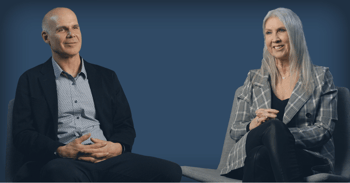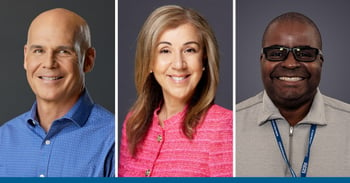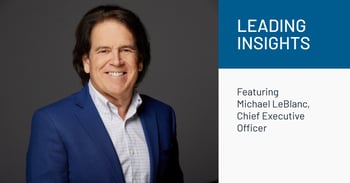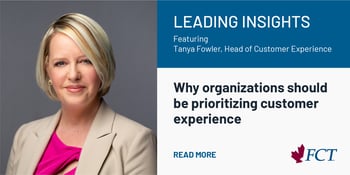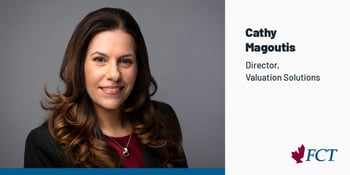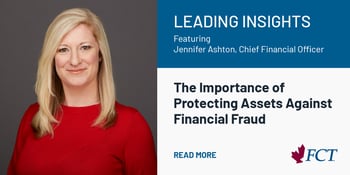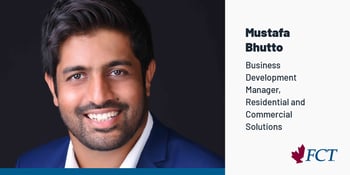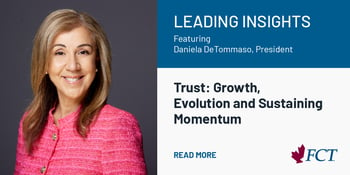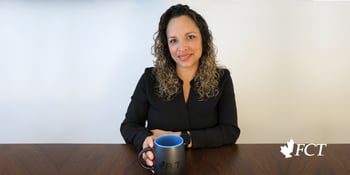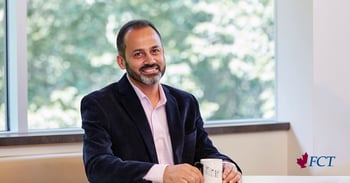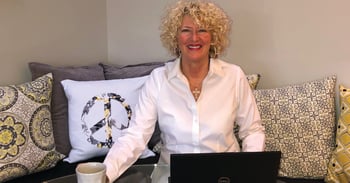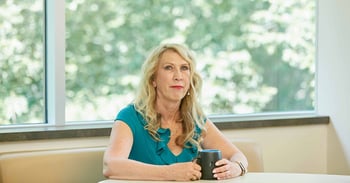
The mortgage industry is, and always has been, competitive. It’s an exciting career choice, but it’s not easy. There’s a lot to learn about different lenders, regulations, forms, etc. and occasionally it can be an uphill battle when things change just as you’re getting comfortable. If you feel like you’re struggling to balance new business leads and processing mortgages, guess what? You’re not alone. Many have faced similar issues and still triumphed at the end, and so can you!
We spoke to successful mortgage brokers across Canada and asked for their advice on achieving success:
Amy Coburn, a mortgage broker at Real Mortgage Associates, has been in the finance industry for 25 years. She thrives on the constant change and being able to come up with solutions to make her clients’ lives easier. She had a rough start trying to build a client base and combatting the myth of what a broker does—clients often felt that people only go to brokers if the bank says no or that brokers charged fees. Her challenge was to educate clients that the brokers of today are not the brokers of the 80s and that there are more important things than rates.
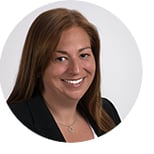 “Don’t play the rate game; it is important, but that’s not the sole reason someone chooses a mortgage. You need to understand your client and their needs; rate becomes a non-issue when you address every other concern the client has. If you get into the rate game, 9 times out of 10 you’re going to lose. Someone’s going to offer a better one, but it may not be a better product.” “Don’t play the rate game; it is important, but that’s not the sole reason someone chooses a mortgage. You need to understand your client and their needs; rate becomes a non-issue when you address every other concern the client has. If you get into the rate game, 9 times out of 10 you’re going to lose. Someone’s going to offer a better one, but it may not be a better product.” |
Christine Walker, mortgage agent at Mortgage Architects, became a broker in 2012. She enjoys helping people reach their goal of owning a home. Christine’s first six months as a broker in Canada were a struggle, even though she had processed mortgages at a bank in England for 18 years. She was determined to prove herself here, and through networking and hard work, she succeeded.
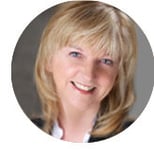 “You really have to get out there, and speak to those you know first—your family, friends, and people in your circle. You can’t just sit in an office and expect it to come to you. You also need to know what you’re selling—there are all different types of lenders and products, and you’ve got to keep yourself updated on everything. Clients will be comfortable with you, if you’re confident in what you’re doing.” “You really have to get out there, and speak to those you know first—your family, friends, and people in your circle. You can’t just sit in an office and expect it to come to you. You also need to know what you’re selling—there are all different types of lenders and products, and you’ve got to keep yourself updated on everything. Clients will be comfortable with you, if you’re confident in what you’re doing.” |
Collin Bruce, a mortgage broker and franchise owner of Dominion Lending Centres, started brokering in 2006. Being a business owner was a challenge for him as it meant being in charge of marketing, payroll and taxes in addition to actually doing the mortgages. In his early days, Collin would go to work from 8 a.m. to 8 p.m. While his work-life balance has improved, he continues to learn new things all the time and never takes his business for granted.
 “The longer you’re in the industry the more you learn. It’s such a steep learning curve for new agents, so unless you have a really supportive brokerage with a good training program, it’s hard to know what to do. Every deal counts, you can’t ever take your foot off the gas. If you’re not calling realtors, not meeting with clients or not out visiting people, you’re not getting mortgages.” “The longer you’re in the industry the more you learn. It’s such a steep learning curve for new agents, so unless you have a really supportive brokerage with a good training program, it’s hard to know what to do. Every deal counts, you can’t ever take your foot off the gas. If you’re not calling realtors, not meeting with clients or not out visiting people, you’re not getting mortgages.” |
Craig Spicer, the senior mortgage consultant at Premiere Mortgage Centre, has been doing mortgages since 1997. He says that in this industry, perseverance is key. When Craig started out, he didn’t have any referral relationships and the biggest obstacle he faced was getting over the mindset of being in people’s faces and asking for business. He used to hope that the people he went to meet wouldn’t be there, so he wouldn’t have to talk to them. But with a little bit of time and desperation to earn, he got over it.
 “There was a bit of a sink or swim mentality, and I wanted to swim. The person who hired me said ‘You get honest pay for an honest day’ and it always plays in the back of my mind. If you don’t put the time and effort into it, you won’t get results out of it. Don’t give up—if you do right by your clients and referral partners, you will inevitably succeed. And never sway from your moral compass.” “There was a bit of a sink or swim mentality, and I wanted to swim. The person who hired me said ‘You get honest pay for an honest day’ and it always plays in the back of my mind. If you don’t put the time and effort into it, you won’t get results out of it. Don’t give up—if you do right by your clients and referral partners, you will inevitably succeed. And never sway from your moral compass.” |
Crystal Mamchur, a broker owner of Flare Mortgage Group, has been in the industry for over 15 years. She knew that she wanted to help people get into home ownership ever since she worked on her first mortgage at a bank. Crystal believes that it is important to set new brokers up for success. When she became a broker, her challenge was finding the right brokerage to join—she shopped around and interviewed a number of broker owners and team members before she chose one.
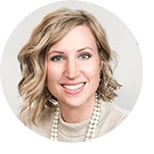 “If you’re entering the industry, it’s important to interview with broker owners and understand what the team environment is like and what processes are in place for new brokers to be successful. And have a nest egg—in this business it takes a while and you have to put in money before you can make money. So make sure you have savings or access to a line of credit to tide you over for at least three months; it might take you that long to fund your first deal.” “If you’re entering the industry, it’s important to interview with broker owners and understand what the team environment is like and what processes are in place for new brokers to be successful. And have a nest egg—in this business it takes a while and you have to put in money before you can make money. So make sure you have savings or access to a line of credit to tide you over for at least three months; it might take you that long to fund your first deal.” |
David Skinner, mortgage broker at The Mortgage Group, has been a broker for 23 years. He was drawn to the freedom of working for himself. As one of the original CIBC Mortgage Specialists in Halifax, he had no one to learn from but himself. As such, he now strongly advocates sharing knowledge with both clients and other brokers.
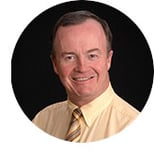 “Learn your product and don’t be afraid to share your knowledge—with individual clients as each one has different circumstances and requirements, and with brokers. Knowledge is power! If we can get another deal done through the broker channel, it makes our whole industry stronger.” “Learn your product and don’t be afraid to share your knowledge—with individual clients as each one has different circumstances and requirements, and with brokers. Knowledge is power! If we can get another deal done through the broker channel, it makes our whole industry stronger.” |
Diana Lee, the founder, owner and broker at The Mortgage Minds, has worked in the banking and mortgage industry for over 15 years. She believes that it is very important to have a good support system, especially when you’re new to the industry. Diana found that her mentors, peers and business development managers were valuable resources when she had questions. When Diana was early in her career, she learned the importance of managing her client database and taking advantage of every opportunity to stay connected.
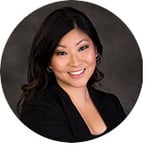 “You just get really busy in your business and sometimes you don’t stop and look at the people who got you where you are. Everyone says that your past clients are your biggest referral sources and they truly are. Really connect with them, not just by email but personally, and keep that relationship going.” “You just get really busy in your business and sometimes you don’t stop and look at the people who got you where you are. Everyone says that your past clients are your biggest referral sources and they truly are. Really connect with them, not just by email but personally, and keep that relationship going.” |
Gagan Gahunia, the founder of Mortgage Winners, has been in the business for about 13 years. He was drawn to the dynamic nature of the profession and loves that no situation is ever the same. Starting out at 25 years old, his age was both an obstacle and advantage at the same time. Clients would look at him and think that he was inexperienced because he was so young. However, as he didn’t have a family at the time, he was able to put in countless hours to improve his skillset and be a better mortgage broker.
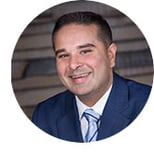 “You must keep yourself in the loop with all the changes in the industry. The time that you put in is valuable and you learn along the way; hard work and perseverance pays off. We have to be innovative because every situation is unique and it is our job to come up with the best solution for our clients.” “You must keep yourself in the loop with all the changes in the industry. The time that you put in is valuable and you learn along the way; hard work and perseverance pays off. We have to be innovative because every situation is unique and it is our job to come up with the best solution for our clients.” |
Gordon McCallum, the founder, president and CEO of First Foundation and an Edmonton mortgage broker, began working in the industry in 2002. He enjoys being able to make a difference and offer his clients real benefits. As he didn’t have a background in banking, early in his career, Gordon had trouble understanding the underwriting process and how to read a credit report. But through asking the right people the right questions, he was able to learn quickly.
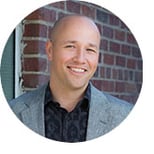 “Knowing who and what to ask to get the answers you need is an important skill in any business, but especially in one that’s changing so rapidly. Be resourceful, find out who you can ask questions of and be relentless and determined in finding answers. If you can’t do that, you’re dead in this business.” “Knowing who and what to ask to get the answers you need is an important skill in any business, but especially in one that’s changing so rapidly. Be resourceful, find out who you can ask questions of and be relentless and determined in finding answers. If you can’t do that, you’re dead in this business.” |
Karen Millington, residential mortgages manager at The Mortgage Centre has been in the industry for 25 years. For her, it’s not just a job, it’s a passion. In the beginning, her biggest challenge was learning the offerings of all the different lenders. For the first four years, she had a mortgage bible which was a binder of every lender’s information. When lenders started updating their websites with rates and information, it made life much easier for Karen. Her secret to success is talking to as many people as possible.
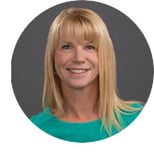 “When I started out, I told everyone in the grocery line what I did for a living, and I still do that. You would be surprised at how much business you can get from just talking to someone you’ve never met before and how open they are. You just got yourself a new client and a new friend.” “When I started out, I told everyone in the grocery line what I did for a living, and I still do that. You would be surprised at how much business you can get from just talking to someone you’ve never met before and how open they are. You just got yourself a new client and a new friend.” |
Michael (Mike) Cameron, CEO and managing partner of Axiom Mortgage, started brokering in 1994. He always had an entrepreneurial spirit and was naturally drawn to the profession. In his current leadership role, he takes pride in watching his team grow. Throughout Mike’s career, there were many peaks and plateaus that scared him, but he strongly believed that everything would work out if he did the right things.
 “I remember my manager used to tell me, ‘you’re doing all the right things, just keep doing them.’ It’s not what you want to hear, because sometimes you just want to see the results. But if you focus on the activities instead of the results, the results tend to come. This is a relationship business—if you want to do more business, talk to more people.” “I remember my manager used to tell me, ‘you’re doing all the right things, just keep doing them.’ It’s not what you want to hear, because sometimes you just want to see the results. But if you focus on the activities instead of the results, the results tend to come. This is a relationship business—if you want to do more business, talk to more people.” |





















